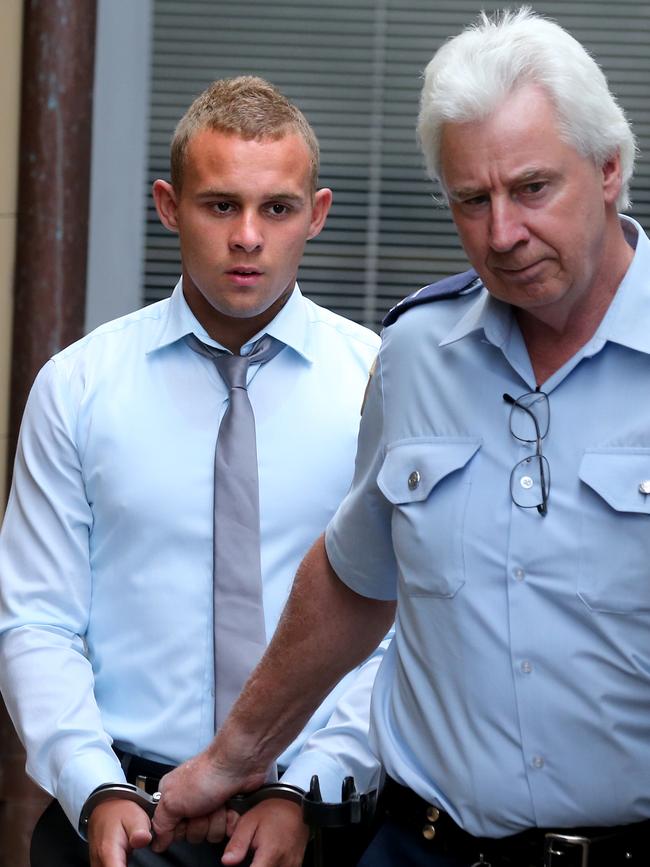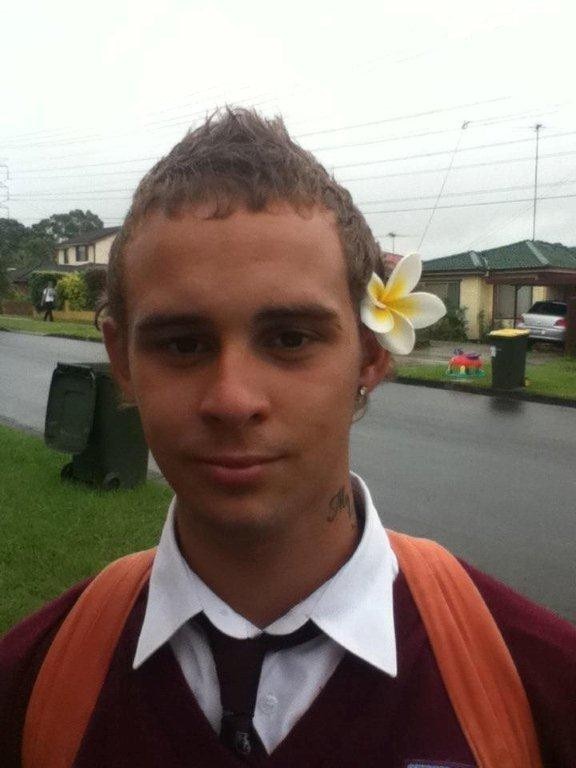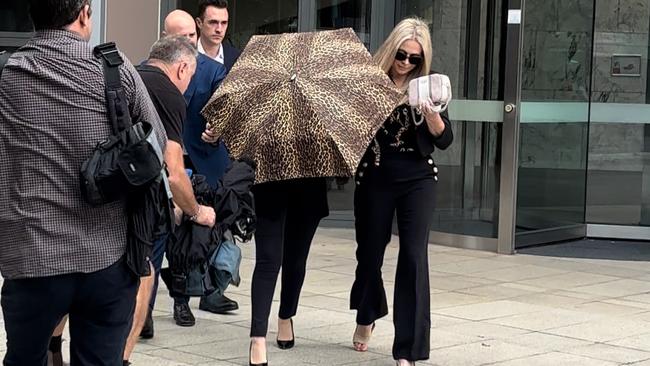Man who triggered Sydney’s one-punch lockout laws to leave prison, granted parole
A man who “cowardly” killed a teenager in a one-punch attack and triggered Sydney’s lockout laws became drunk while behind bars, a court has been told.

Breaking News
Don't miss out on the headlines from Breaking News. Followed categories will be added to My News.
A man who killed a teenager in a “cowardly and unprovoked” one-punch attack, triggering lockout laws in Sydney’s busiest nightclub precinct, drank alcohol and became aggressive behind bars due to “heightened anxiety” linked to his impending release from prison.
Kieran Loveridge will be released from prison after the NSW State Parole Authority on Thursday found there would be a “substantially greater risk” if he were released at a later time.
The now 30-year-old has spent 12 years in prison after he killed Thomas Kelly in the “cowardly and unprovoked” attack in July 2012.
Appearing from Broken Hill Correctional Centre on Thursday before the NSW SPA board, Loveridge did not react as the court was told he was found to be intoxicated and aggressive towards prison staff in February this year.


Authority Chair, the Honourable Geoffrey Bellew SC told the court he was “intoxicated and aggressive” towards Community Corrections staff on February 27.
“An inquiry into the incident established that whilst the offender consumed alcohol, it had in fact been produced by another inmate,” Justice Bellew said.
The court was told Loveridge complied with a behavioural management program, explaining the conduct as a “consequence of heightened anxiety due to his impending release and the potential media publicity that such release may bring about”.
Outside court, talking on behalf of the family, victims advocate Howard Brown told media Mr Kelly’s family were not told Loveridge had behaved in this way in prison.
“The difficulty we are going to have is he is not going to re-integrate into the community because he has not been given all the facilities he requires...I would imagine I will probably be standing before you in the next six months discussing him breaching,” Mr Brown said.
It is not the first controversy Loveridge has been involved in while behind bars.
He was involved in an “improper relationship” with a female correctives officer more than a decade older than him while he was at Kempsey’s Mid North Coast Correctional Centre.
The revelation of the relationship prompted a move to Goulburn’s Supermax, which is usually the home of high-risk offenders such as terrorists and murderers.


Earlier in the hearing, Mr Kelly’s mother Kathy Kelly issued a heartbreaking message to the court.
“We lost our beautiful son … four years later our other child Stewart took his own life as a result of the loss of his older brother,” Ms Kelly said via AVL from the UK alongside her husband Ralph.
“He was only 14 years old when Tom was killed … our family may never find forgiveness for Mr Loveridge.
“We continue to grieve every day for our two boys … we have been handed a double life sentence.”
Authority Chair, the Honourable Geoffrey Bellew, SC told the court the SPA was “satisfied” it was in the community’s interest to release Loveridge.
While there will always be a risk in releasing an offender, Justice Bellew told the court the risks were mitigated in the case.
“There would be a substantially greater risk imposed if he were released at a later time with a shorter period of supervision,” he said.
“Or worse still at the end of his sentence without any supervised parole at all.”
Loveridge was arrested when he was 18 and had spent the “greater part” of his adult life in custody, Justice Bellew told the court.
He said there was a “need” for the offender to have a period in the community while on parole.
As positive progress had been made in custody, Justice Bellew said Loveridge would be released between April 18 and April 25.

Mr Kelly’s father Ralph issued a statement to the court, making clear he did not support the intention to release Loveridge but also stated he did not oppose the decision.
“It is our view that for Thomas’s death to mean something, it is imperative that every effort is made to ensure that a pathway is created to ensure Mr Loveridge’s transition to community life is as smooth as possible,” the statement said.
The board acknowledged the sorrow expressed by the parents and the grief suffered by the family since their son’s death.
The court was told Loveridge was on an alcohol-fuelled rampage through Kings Cross in 2012 when he attacked Mr Kelly, punching him and causing him to fall back and fracture his skull on the pavement.
Loveridge was on bail at the time of the death, with the court hearing the punch which killed Mr Kelly was one of a string of assaults.
Mr Kelly was rushed to hospital but suffered a severe brain injury and died two days later.
Loveridge was initially sentenced to seven years in prison after he pleaded guilty to manslaughter and the assaults of four other men but was re-sentenced after the Crown appealed.
During his resentencing in the Court of Criminal Appeal in 2014, the act was described as “cowardly and unprovoked”.

He was handed a maximum sentence of 13 years and eight months with a non-parole period of 10 years and two months.
Loveridge’s non-parole period expired in June last year, but his previous release was knocked back by the parole authority.
Two female supporters of Loveridge, one believed to be his current partner, refused to answer questions outside court.
While on parole, Loveridge must comply with strict conditions, including abstaining from alcohol, participating in a violence offenders program, cannot contact any victims or their families and he is not allowed to associate with any co-offenders.
He is also banned from contacting or communicating with any outlaw motorcycle gang members or associates, is not allowed to visit the City of Sydney, LGA of Shoalhaven or the suburb of Neutral Bay.
Loveridge’s parole order will expire in May 2026 unless revoked.
Mr Kelly’s death prompted the NSW government to introduce legislation that closed Sydney venues at 1am, known as lockout laws.
Originally published as Man who triggered Sydney’s one-punch lockout laws to leave prison, granted parole



